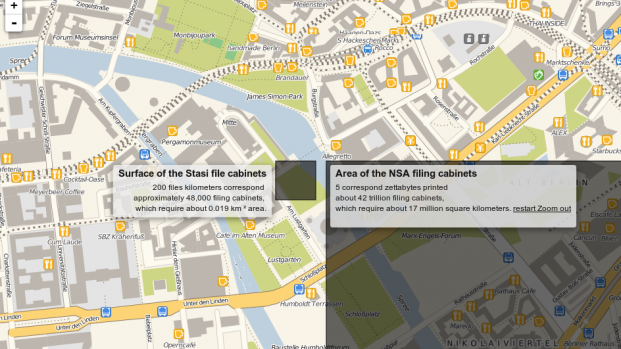In Maclean’s, Colin Horgan says it’s the Huxley dystopia we’ve actually fallen into, rather than the Orwellian:
Over at the New Yorker, Ian Crouch wondered this week whether we really are living in some version of George Orwell’s Nineteen Eighty-Four. It seems like a perpetual question, but it has renewed relevance now, both in light of the revelations last week from the Glenn Greenwald at the Guardian that the National Security Association is, apparently, mining internet data from users (whether guilty or not), without their knowledge or consent, and because in the subsequent days, sales of Nineteen Eighty-Four skyrocketed.
But, as Crouch asked, are we living in Nineteen Eighty-Four? Not quite. It all looks pretty bad, and the nightmare scenario Orwell depicted is, technically speaking, quite possible but, Crouch noted, “all but the most outré of political thinkers would have to grant that we are far from the crushing, violent, single-party totalitarian regime of Orwell’s imagination.” Surely, though, this is not what was envisioned – even when the Patriot Act was debated back at the turn of the century, few (if any) could have envisioned that the laws might be one day stretched quite as far as they appear to have been under the Obama administration. So, if not Nineteen Eighty-Four then when? What time is this?
[. . .]
There are two ways for a culture to die, Neil Postman wrote back in the 1980s: One is Orwellian, “where culture becomes a prison,” and the second is Huxleyan, where “culture becomes a burlesque.” To answer Crouch’s question, we are living the second reality more than the first. Big Brother does not watch us by his choice; rather, as Postman put it, we watch him by ours. “Orwell feared that the truth would be concealed from us. Huxley feared the truth would be drowned in a sea of irrelevance,” Postman wrote.
[. . .]
To paraphrase Postman, we have not been ruined by what we hate, but instead, as Huxley predicted, by what we love. We are prisoners to our own egoism and passivity, drowning in a sea of irrelevant streaming data, presented not in with any hierarchy or inherent importance, but as equal and unweighted. The Harlem Shake and Nyan Cat are just as relevant as a civil war in Syria or a democratic nation spying on its own citizens, just as being watched by millions of strangers via webcam or TV broadcast feels just the same as being watched by the government. And, as Huxley thought we might, we have convinced ourselves that is freedom.




